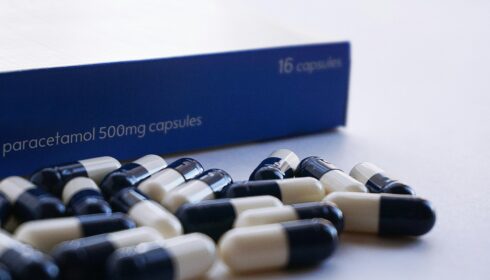CORTICUS
CORTICUS: Hydrocortisone Therapy for Patients with Septic Shock
Sprung et al. N Engl J Med 2008; 358:111-24.
Clinical Question
- In adult patients with severe septic shock, does hydrocortisone versus placebo reduce mortality at 28 days?
Design
- Multi-centre, randomised controlled trial
- Double-blinded
- Computer generated, block randomisation stratified by study centre.
- All patients had short corticotropin test to identify “responders” from “non-responders” for a priori sub-group analysis.
- Adverse events data collected for safety analysis at blinded interim intervals.
- Power calculation: if 40% included were “non-responders” with a baseline 28-day mortality of 50%, then 400 patients per arm were required to detect 10% absolute reduction in mortality with 80% power and 5% accepted type 1 error.
Setting
- 52 participating ICUs
- March 2002 to November 2005
Population
- Inclusion: adults with severe sepsis, with all of the following:
- clinical evidence of infection;
- systemic response to inflammation;
- shock (systolic BP < 90 mmHg despite 1 hour fluid resuscitation or the need for vasopressors);
- organ dysfunction attributable to shock.
- Exclusion: chronic steroids within 6 months; acute steroids within 4 weeks; immunosupression; less than 24 survival expectation
- 499 patients recruited
Intervention
- Hydrocortisone given as 50 mg in 6-hourly boluses
- Tapering regime from day 6. Stopped on day 12.
Control
- Identical placebo prepared and administered in an identical way to intervention.
Outcome
- Primary outcome: no difference in 28-day mortality in short corticotropin non-responders (i.e. the sub-group that were more likely to benefit from exogenous corticosteroids)
- 39.2% in hydrocortisone group vs. 36.1% in placebo group
- Absolute difference 3.1% (95% C.I. -9.5% to 15.7%) favouring placebo.
- p=0.69
- Secondary outcome:
- No difference in 28-day mortality in short corticotropin responders (i.e. the sub-group that were less likely to benefit from exogenous corticosteroids)
- 28.8% vs. 28.7%, P=1.0
- No difference in 28-day mortality in all patients
- 34.3% vs. 31.5%, P=0.51
- Statistically significant reduction in the time to reversal of shock favouring the hydrocortisone group (seen in responders, non-responders and all patient groups).
- median time until reversal of shock, in all patients, was 3.3 days (95% C.I. 2.9-3.9) in the hydrocortisone group vs. 5.8 days (95% C.I. 5.2-6.9) in the placebo group
- Non-significant increase in rate of superinfections in hydrocortisone vs. placebo group
- 33% vs. 26%, RR 1.27 (95% C.I. 0.96-1.68)
- No difference in 28-day mortality in short corticotropin responders (i.e. the sub-group that were less likely to benefit from exogenous corticosteroids)
Authors’ Conclusions
- The use of hydrocortisone did not decrease mortality in a general population of patients with septic shock, even though the drug hastened reversal of shock
Strengths
- Excellent randomisation and blinding methodology
- Sensible primary outcome, and useful secondard outcomes
- Fair commentary of problems by authors in ‘Discussion’ section of paper
Weaknesses
- Despite 52 ICUs, this study failed to recruit required numbers (average of less than 10 patients per ICU over 3 years) despite common incidence of severe sepsis.
- Actually mortality (~38%) was much lower than estimated mortality used for power calculation (50%)
The Bottom Line
- This study did not demonstrate survival benefit from administering hydrocortisone to adult patients with severe septic shock. It may lead to harm from superinfection. It does lead to reversal of shock quicker than placebo.
- Based on this study alone, hydrocortisone should not be routinely given to adult patients with severe septic shock.
- It may be worth considering when all else has failed.
Links
Full text pdf / abstract / doi: 10.1056/NEJMoa071366
Editorial, Commentaries or Blogs
- The ADRENAL study: a trial of corticosteroids in patients with sepsis, aiming to recruit 3,800 patients to answer this same clinical question.
- Mason et al. CORTICUS: The end of unconditional love for steroid use? [commentary]
- Wiki Journal Club: CORTICUS [commentary]
- Finfer. Corticosteroids in sepsis. [editorial]
Metadata
Summary author: @DuncanChambler
Summary date: 6 June 2014
Peer-review editor: @davidslessor




Pingback: Clinical Trials Worth Knowing - CRICU Sepsis Nursing Workshop - INJECTABLE ORANGE
Pingback: Clinical Trials Worth Knowing – CRICU Sepsis Nursing Workshop |
Pingback: Steroids in Sepsis – The Bottom Line